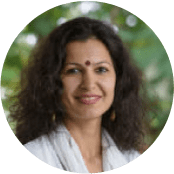On March 21, 2013 the Karnataka High Court directed the Ullal police to assist Ms. Maria Chaya Schupp in her search for her biological mother and to investigate the conditions under which she was given up for adoption in 1981. The Court’s order comes at the end of a 6 year old legal battle and as a result has become a victory not just for Maria Chaya, but for adoptees from all over the world, in search of their biological parents in India.
The Court’s order is an open acknowledgment of the adoptee’s Right to Know – a principle that has received a great deal of international acceptance, but very little to no attention in India. It is the recognition of a person’s psychological need to know one’s own origins, as a human right. The Right to Know is considered a part of one’s Right to Life and Right to Privacy; and has also been guaranteed by the 1989 Convention on the Rights of the Child and the 1993 Convention on the Protection of Children and Co-operation in respect of Inter-country Adoption.
The Right to Know has not yet been fully accepted or awarded the status of a fundamental human right in India, however the Right to Life has been expanded by the Supreme Court of India in many cases to include under its fold, the right to privacy and dignity. With respect to this, it can be said that the judgment delivered in Maria Chaya’s case is extremely important in that it sets a precedent for the use and acknowledgment of a hitherto unknown rule in Indian law.
According to CLPR’s Jayna Kothari who appeared on behalf of Maria Chaya, “a person’s right to know her biological or genetic origins raises some of the hardest legal and ethical issues that we have had to face in the last several years.” According to the Hindu Op-Ed piece , “A difficult road to her roots” published on March 30, 2013; Maria Chaya’s case emphasises the need to articulate a policy and legal mechanism for openness in adoption records, and the need for a comprehensive child-centric adoption law in India.

